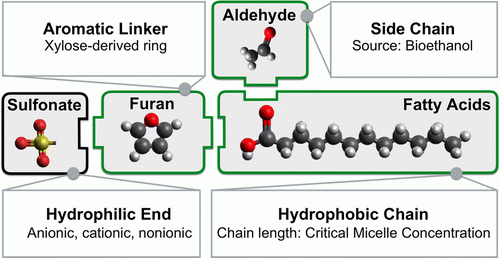No More Shampoo Goo
Published on by Water Network Research, Official research team of The Water Network in Academic
A new chemical process which combines fatty acids from soybeans or coconut and sugar-derived rings from corn to make a renewable soap molecule called Oleo-Furan-Surfactant is good for the environment and your hair.
 Funded by the U.S. Department of Energy, researchers from the Catalysis Center for Energy Innovation found that OFS worked well in cold water where conventional soaps become cloudy and gooey rendering them unusable. Additionally, OFS soaps were shown to form soap particles (called micelles) necessary for cleaning applications at low concentrations, which significantly reduces the environmental impact on rivers and lakes.
Funded by the U.S. Department of Energy, researchers from the Catalysis Center for Energy Innovation found that OFS worked well in cold water where conventional soaps become cloudy and gooey rendering them unusable. Additionally, OFS soaps were shown to form soap particles (called micelles) necessary for cleaning applications at low concentrations, which significantly reduces the environmental impact on rivers and lakes.
OFS soap was also engineered to work in extremely hard water conditions. For many locations around the world, minerals in the water bind with conventional soaps and turn them into solid goo. The new OFS soap eliminates the hard water problem by using a naturally derived source that does not bind strongly to minerals in water. The researchers found that OFS molecules were shown to form soap particles (micelles) even at 100 times the conventional hard water conditions. As a result, a cleaning product’s ingredient list could be significantly simplified.

Not just better for the environment: better performance
Modern variations of surfactants based on fossil fuel precursors exhibit performance limitations inherent to their molecular structure. The breadth of performance targets is sufficiently large that modern surfactant structures cannot be independently optimized for all properties, requiring the use of substantial additives for effective application.
So, you can get better performance (or require less complex a series of additives) with bio-based. Chalk up another win for the bioeconomy.
The researchers also use nanoparticle catalysts to optimize the soap structure for foaming ability and other cleaning capabilities. In addition to biodegradability and cleaning performance, OFS was shown to foam with the consistency of conventional detergents, which means it could directly replace soaps in existing equipment such as washing machines, dishwashers, and consumer products.
Source: Chem Info
Media
Taxonomy
- Water
- Chemistry
- Environment
- Environment